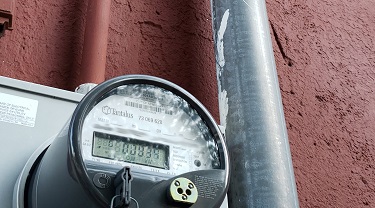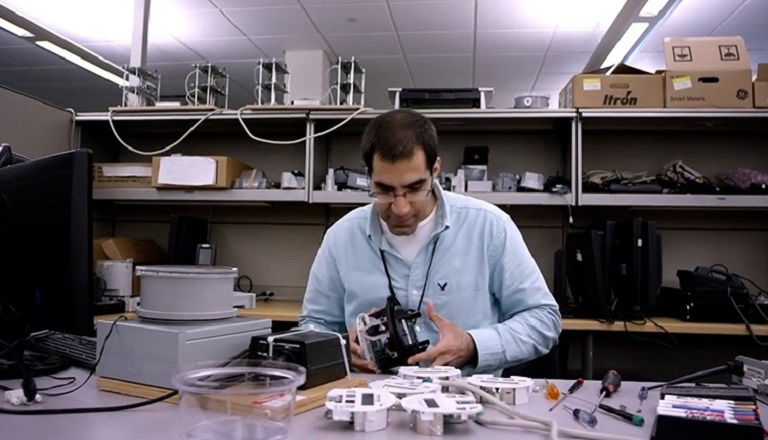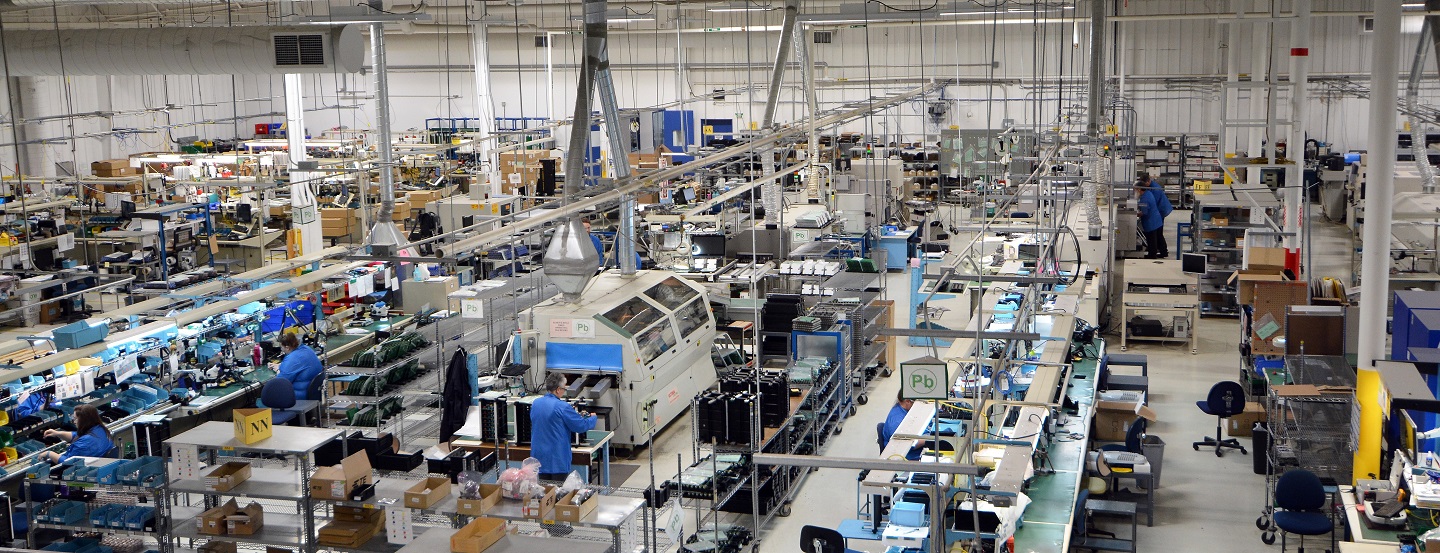
Power up: Smart grid technology
Tantalus Systems Corp. of Burnaby, BC is an Export Development Canada 2020 Cleantech Export Star.
When Tantalus Systems was founded in 1989, the way electric power was distributed hadn’t changed for almost a century. Our goal was to develop technology that would enhance the safety, security, reliability and efficiency of public power and electric co-operative utilities.
Fast-forward 30 years, the utility industry is in the early stages of a remarkable transformation in power generation and distribution. Consumer expectations have also changed dramatically over this time. Customers are now demanding improved visibility into their power bills, access to consumption data and better customer service, especially during power outages.
Our purpose is to help smaller utilities manage these transitions through purpose-built, smart grid solutions that enable devices to connect and co-ordinate with each other in a decentralized fashion.
We empower utilities to access granular data from both legacy meters and our cutting-edge, two-way intelligent devices to improve reliability, reduce costs, engage with their customers and streamline system operations.
New demands on the power grid
We see two key trends transforming the utility industry. The first is the gradual shift in perception that power comes from a single, centralized source of generation and is delivered in only one direction–from the utility to the consumer. More and more, power and storage are coming from multiple sources, including rooftop solar panels and renewables, storage from batteries in electric vehicles and other technology in homes and buildings. Utilities need to be prepared to embrace these new technologies by investing in their grids to support sources of power being generated from distributed places throughout their infrastructure and mitigate risks arising from a more volatile climate.
Within the business model of our target market—smaller utilities focused on distribution—our solutions can enable a utility to engage directly with their customers to access potential sources of power being generated at the home or building to offset or supplement the purchase agreements they have with traditional power generators. One of our goals is to provide utilities with a very detailed data profile of their customers consumption, so they can better anticipate their customers needs and create a balance between supply and demand.
The second trend we see is that consumer behaviour is changing drastically. Like in so many other industries, consumers expect access to real-time data and better service from their utility. Whether it’s a faster response to a power outage or detailed information about their power consumption, the utility industry has to meet those expectations, particularly given the transition of employees and students to work and study remotely during the ongoing COVID-19 pandemic.
Edge computing at the meter
Our business is unique in that we partner with—and compete against—some of the largest meter manufacturers in the world. Tantalus is one of the few independent smart grid providers that isn’t affiliated with a meter manufacturer or a division of a major conglomerate. We’re in the business of turning a meter into a very intelligent computing device, like a smartphone.
Our company’s heritage is built on accessing meters and various endpoints in challenging and remote areas in a cost-effective way. We’re currently deploying our third-generation TUNet® technology, which leverages our proprietary communications network for utilities. At the edge of that network are Linux-based computing modules integrated under the glass of the meter and other endpoints, such as load control devices, distribution automation equipment and street and security lighting fixtures that the utility can deploy from the substation down to homes or buildings.
The edge computing platform enables us to load software on the device, so it can operate autonomously at the edge of a utility’s grid, taking action based on a set of configurable parameters. This represents a considerable advancement from earlier technology in which a device with some intelligence, saw something happen and sent a signal to a centralized computing system while waiting for a response to determine what action should be taken.
In difficult terrain such as mountains and forests, that “round-trip” of data between a meter or endpoint and a centralized computer takes time, eats up capacity and causes more congestion on the network, making the device less responsive. Now, the computing can occur independently at the source of the data to increase the responsiveness of a utility’s grids and reduce traffic and congestion on the network to support additional smart grid applications, fulfilling the promise of edge computing.
Smart grids in North America and the Caribbean
Tantalus is focused on a specific segment of the utility industry in Canada, the United States (U.S.) and the Caribbean. The utilities we support are referred to as public power and electric co-operative utilities. They’re typically not-for-profit and owned by a small to mid-sized municipality or a set of members with thousands of meters as opposed to a metropolis with millions of meters. The utilities we support are often in small communities or in rural footprints and have to deliver power in challenging terrain with fewer available resources. In many circumstances, they’re vital to the success and economic prosperity of their local communities. Everything that we do is about identifying and resolving issues that are inherent to these smaller utilities.
Expanding Internationally
Our international strategy is guided by two important considerations:
- The applicability of our technology for the target market. Tantalus has customers throughout Canada and the U.S. and we still see a lot of opportunity with utilities throughout North America. We’re also growing in countries across the Caribbean Basin. We’re currently prioritizing geographic areas that comply with similar standards to North America’s, but are evaluating several initiatives to expand geographically.
- Accessibility to our customers. What we do is critical for the utilities we support and the communities they serve. Our utility applications create great opportunities for Tantalus to build multi-decade relationships with our customers. To facilitate and expand our relationships, we forge partnerships and work closely with their teams. For example, our technology is applicable in some countries in Southeast Asia, as well as Central and South America. However, we would need to assess how to provide hands-on support in those regions prior to pursuing opportunities in regions.
How EDC helped
Through the Export Guarantee Program (EGP) and backstopping our receivables from utilities outside of Canada with Accounts Receivable Insurance, Export Development Canada has enabled us to establish a fairly comprehensive senior debt facility with a large bank that would otherwise have likely perceived Tantalus as a smaller entity and riskier borrower. EDC has helped us access critical working capital to support our supply chain and build inventory.




















